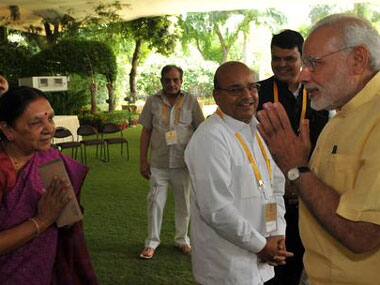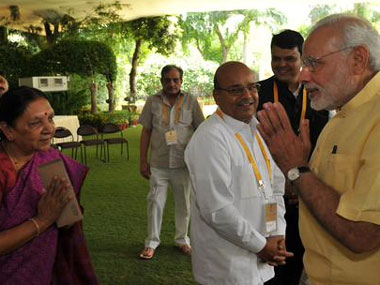Prime Minister Narendra Modi’s initiative to use Niti Aayog’s Governing Council forum to hold a parallel consultation process on land acquisition bill has not really paid off in building a political consensus. But the move does convey the Centre’s urgency to push for the passage of the contentious bill. The biggest hurdle for the joint parliamentary committee was that most states were not responding to its letter asking for their specific views on various provisions of the land bill. That delayed deliberations in the committee and made it seek a one-week extension from the Speaker. The committee headed by BJP’s SS Ahluwalia is now expected to submit its report on 27 July, during the monsoon session of Parliament, which begins from 21 July. It is not usual for the government to hold a structured consultation process on an issue which is already under scrutiny of a parliamentary panel. Finance Minister Arun Jaitley said since the amendments in the land acquisition bill were mooted by the chief ministers, the Prime Minister thought it fit to carry the consultations forward with chief ministers. Niti Aayog was an appropriate body to discuss all sensitive and serious issues. Consultation with the states constitute an important component of it. [caption id=“attachment_2344182” align=“alignleft” width=“380”]
 Image: Twitter[/caption] PM Modi said “after formation of his Government, several States had raised concerns with regard to the implementation of the Right to Fair Compensation and Transparency in Land Acquisition, Rehabilitation and Resettlement Act, 2013. He said many States had felt that development work was suffering due to the provisions of the 2013 Act; and some Chief Ministers had requested for changes in the Act, and sent letters to this effect. The Ordinance was brought about in response to these development concerns of the States, and also to ensure that farmers continue to receive their legitimate due.” He appealed to them that “political considerations should not come in the way of a solution that would facilitate development of the rural areas, and greater prosperity for the farmers. The matter is now before the Parliamentary Standing Committee, and therefore, ahead of the upcoming Parliament session, it was appropriate that the suggestions of States be listened to, once again.” The political circumstances on land bill are extraordinary for the Modi government. The fate of the bill is still pending even after the issuance of three ordinances. It got passed twice from the Lok Sabha with several amendments. There was even a formation of a joint parliamentary committee to accommodate views of the opposition and allies. Despite that, the Modi government has lost the initial round of a perception battle on the subject. The Congress and other political rivals have succeeded in portraying the proposed bill as anti-farmer. Modi argued that the political deadlock over land acquisition is seriously impacting rural development, including the creation of schools, hospitals, roads and irrigation projects. As far as paying enhanced compensation is concerned, there are no differences in the stands of the Centre and States. The Congress’s blanket opposition to any changes in the law, Right to Fair Compensation and Transparency in Land Acquisition, Rehabilitation and Resettlement Act, has twisted the game. The Congress may have reduced to 44 in lok Sabha but still has a huge contingent of members in Rajya Sabha. Congress’s central leadership had ensured that none of its chief ministers – Kerala, Karnataka, Himachal Pradesh, Uttarkhand and of five north-eastern states Assam, Manipur, Meghalaya, Arunachal Pradesh and Mizoram participated in PM Modi chaired Niti Ayog’s governing council meeting. West Bengal Chief Minister Mamata Banerjee, UP Chief Minister Akhilesh Yadav, Tamil Nadu Chief Minister Jayalalithaa, Odisha Chief Minister Navin Patnaik, Andhra Pradesh Chief Minister Chandrababu Naidu were also not present in the meeting but they had given reasons for their absence and have been in conversation with the Centre on the subject. Naidu for instance could not come because of yesterday’s stampede which resulted in the death of 29 persons while Jayalalitha is reportedly abroad for treatment. From the Modi government’s perspective, the absentees fall in two categories — those who could not come for valid reasons and those who on diktat of their central leadership (Congress) had boycotted it. “Those who chose to boycott (NITI Aayog meeting) must introspect whether not attending the meeting is in tune with the spirit of federalism,” Jaitley said. Jaitley has drawn the battle lines and given a sense as to how the BJP is going to counter attack the Congress on the subject. Not all of the 16 chief ministers who participated in the meeting were in favour of the proposed amendments in the bill. Nitish Kumar, Arvind Kejriwal and Manik Sarkar have publicly opposed the bill. In the meeting Nitish is believed to have said that the timing of pushing the amendments in the land acquisition bill was not conducive. The fact that Bihar is going to polls in October has made Nitish wary of its political implications. Samajwadi Party insists that Mulayam Singh Yadav would make the party’s position clear in Parliament when the matter comes up for discussion. Consensus was the buzz word but the government is in no mood to endlessly delay a bill to build consensus. The Congress has threatened a washout of monsoon session of Parliament. BJP believes that disruption of parliamentary proceedings on account of Lalitgate and Vyapam beyond a point in time would become counter productive for the Congress as the issue has already been in the public domain for long and has also been extensively debated about in the media. It would also depend on whether or not Modi chooses to speak out on these issues in the opening days of monsoon session.
Image: Twitter[/caption] PM Modi said “after formation of his Government, several States had raised concerns with regard to the implementation of the Right to Fair Compensation and Transparency in Land Acquisition, Rehabilitation and Resettlement Act, 2013. He said many States had felt that development work was suffering due to the provisions of the 2013 Act; and some Chief Ministers had requested for changes in the Act, and sent letters to this effect. The Ordinance was brought about in response to these development concerns of the States, and also to ensure that farmers continue to receive their legitimate due.” He appealed to them that “political considerations should not come in the way of a solution that would facilitate development of the rural areas, and greater prosperity for the farmers. The matter is now before the Parliamentary Standing Committee, and therefore, ahead of the upcoming Parliament session, it was appropriate that the suggestions of States be listened to, once again.” The political circumstances on land bill are extraordinary for the Modi government. The fate of the bill is still pending even after the issuance of three ordinances. It got passed twice from the Lok Sabha with several amendments. There was even a formation of a joint parliamentary committee to accommodate views of the opposition and allies. Despite that, the Modi government has lost the initial round of a perception battle on the subject. The Congress and other political rivals have succeeded in portraying the proposed bill as anti-farmer. Modi argued that the political deadlock over land acquisition is seriously impacting rural development, including the creation of schools, hospitals, roads and irrigation projects. As far as paying enhanced compensation is concerned, there are no differences in the stands of the Centre and States. The Congress’s blanket opposition to any changes in the law, Right to Fair Compensation and Transparency in Land Acquisition, Rehabilitation and Resettlement Act, has twisted the game. The Congress may have reduced to 44 in lok Sabha but still has a huge contingent of members in Rajya Sabha. Congress’s central leadership had ensured that none of its chief ministers – Kerala, Karnataka, Himachal Pradesh, Uttarkhand and of five north-eastern states Assam, Manipur, Meghalaya, Arunachal Pradesh and Mizoram participated in PM Modi chaired Niti Ayog’s governing council meeting. West Bengal Chief Minister Mamata Banerjee, UP Chief Minister Akhilesh Yadav, Tamil Nadu Chief Minister Jayalalithaa, Odisha Chief Minister Navin Patnaik, Andhra Pradesh Chief Minister Chandrababu Naidu were also not present in the meeting but they had given reasons for their absence and have been in conversation with the Centre on the subject. Naidu for instance could not come because of yesterday’s stampede which resulted in the death of 29 persons while Jayalalitha is reportedly abroad for treatment. From the Modi government’s perspective, the absentees fall in two categories — those who could not come for valid reasons and those who on diktat of their central leadership (Congress) had boycotted it. “Those who chose to boycott (NITI Aayog meeting) must introspect whether not attending the meeting is in tune with the spirit of federalism,” Jaitley said. Jaitley has drawn the battle lines and given a sense as to how the BJP is going to counter attack the Congress on the subject. Not all of the 16 chief ministers who participated in the meeting were in favour of the proposed amendments in the bill. Nitish Kumar, Arvind Kejriwal and Manik Sarkar have publicly opposed the bill. In the meeting Nitish is believed to have said that the timing of pushing the amendments in the land acquisition bill was not conducive. The fact that Bihar is going to polls in October has made Nitish wary of its political implications. Samajwadi Party insists that Mulayam Singh Yadav would make the party’s position clear in Parliament when the matter comes up for discussion. Consensus was the buzz word but the government is in no mood to endlessly delay a bill to build consensus. The Congress has threatened a washout of monsoon session of Parliament. BJP believes that disruption of parliamentary proceedings on account of Lalitgate and Vyapam beyond a point in time would become counter productive for the Congress as the issue has already been in the public domain for long and has also been extensively debated about in the media. It would also depend on whether or not Modi chooses to speak out on these issues in the opening days of monsoon session.
Most CMs stay away: Modi's pitch for land bill at Niti Aayog meet fails to build political consensus
Sanjay Singh
• July 15, 2015, 22:51:19 IST
Prime Minister Narendra Modi’s initiative to use Niti Aayog’s Governing Council forum to hold a parallel consultation process on land acquisition bill has not really paid off in building a political consensus. But the move does convey the Centre’s urgency to push for the passage of the contentious bill. The biggest hurdle for the joint parliamentary committee was that most states were not responding to its letter asking for their specific views on various provisions of the land bill.
Advertisement
)
End of Article